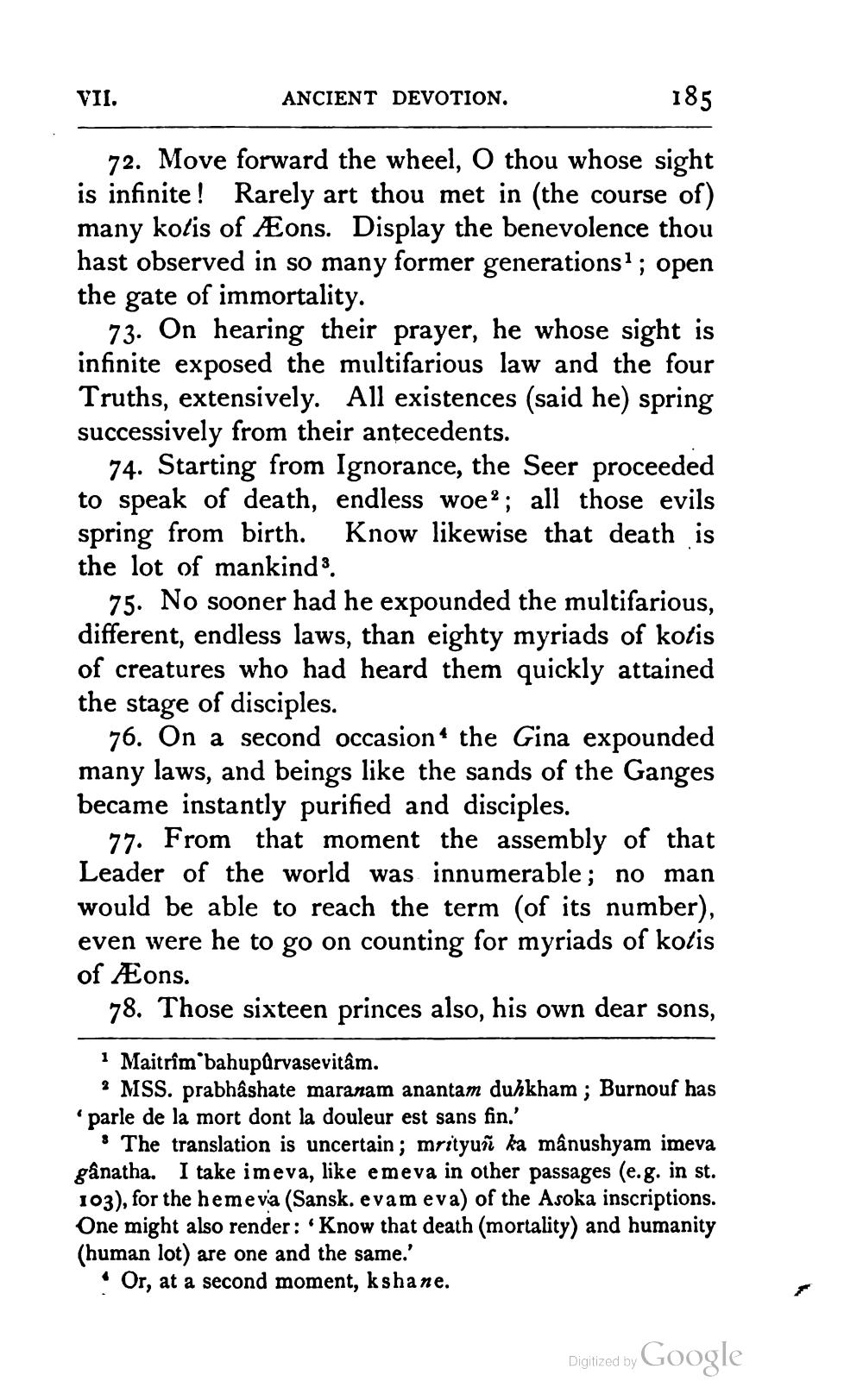________________
VII.
ANCIENT DEVOTION,
185
72. Move forward the wheel, O thou whose sight is infinite! Rarely art thou met in (the course of) many kotis of Æons. Display the benevolence thou hast observed in so many former generations?; open the gate of immortality.
73. On hearing their prayer, he whose sight is infinite exposed the multifarious law and the four Truths, extensively. All existences (said he) spring successively from their antecedents.
74. Starting from Ignorance, the Seer proceeded to speak of death, endless woe?; all those evils spring from birth. Know likewise that death is the lot of mankind 3.
75. No sooner had he expounded the multifarious, different, endless laws, than eighty myriads of kotis of creatures who had heard them quickly attained the stage of disciples.
76. On a second occasion' the Gina expounded many laws, and beings like the sands of the Ganges became instantly purified and disciples.
77. From that moment the assembly of that Leader of the world was innumerable; no man would be able to reach the term (of its number), even were he to go on counting for myriads of kotis of Æons.
78. Those sixteen princes also, his own dear sons,
1 Maitrîm bahupūrvasevitâm. ? MSS. prabhâshate maranam anantam duhkham ; Burnouf has parle de la mort dont la douleur est sans fin.
The translation is uncertain; mrityun ka mânushyam imeva gânatha. I take imeva, like emeva in other passages (e.g. in st. 103), for the hemeva (Sansk. evam eva) of the Asoka inscriptions. One might also render: Know that death (mortality) and humanity (human lot) are one and the same.'
• Or, at a second moment, kshane.
Digitized by Google




